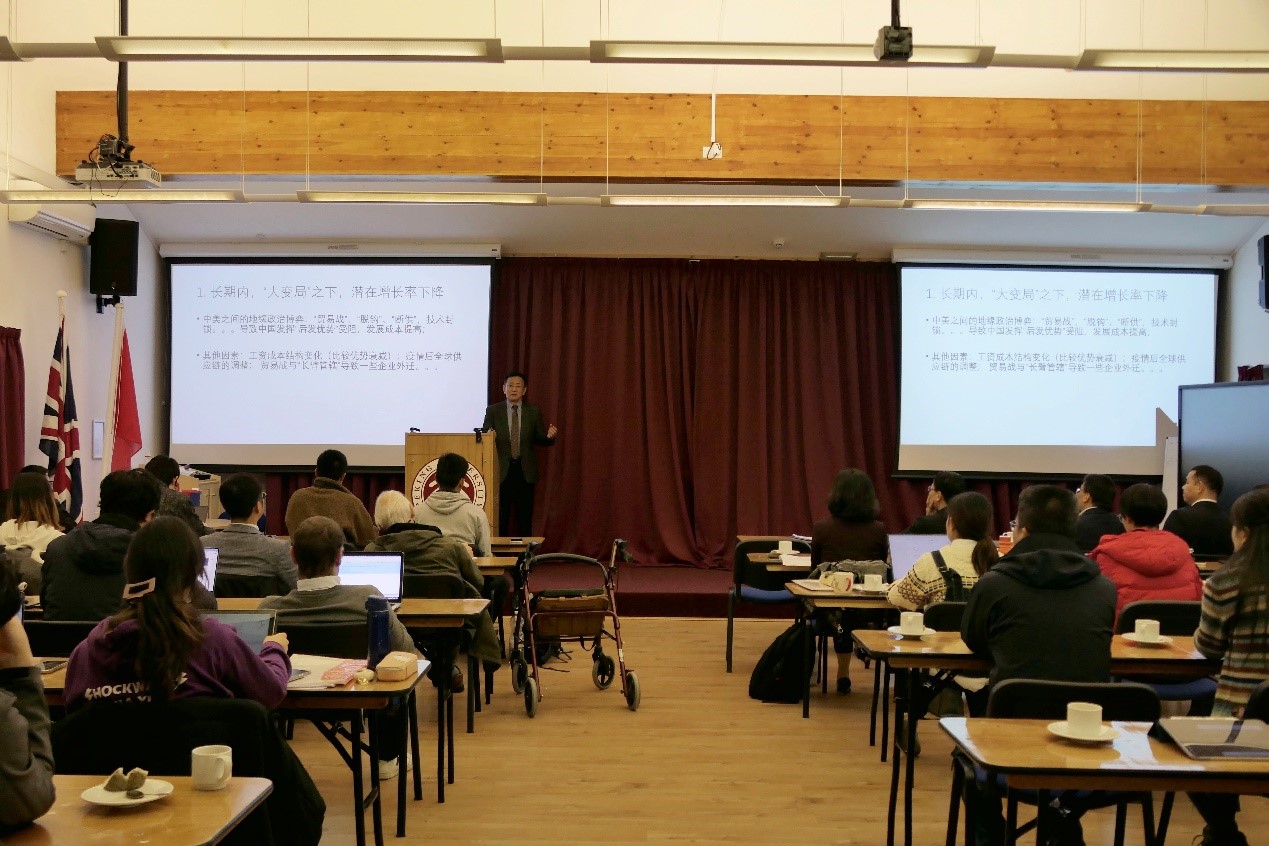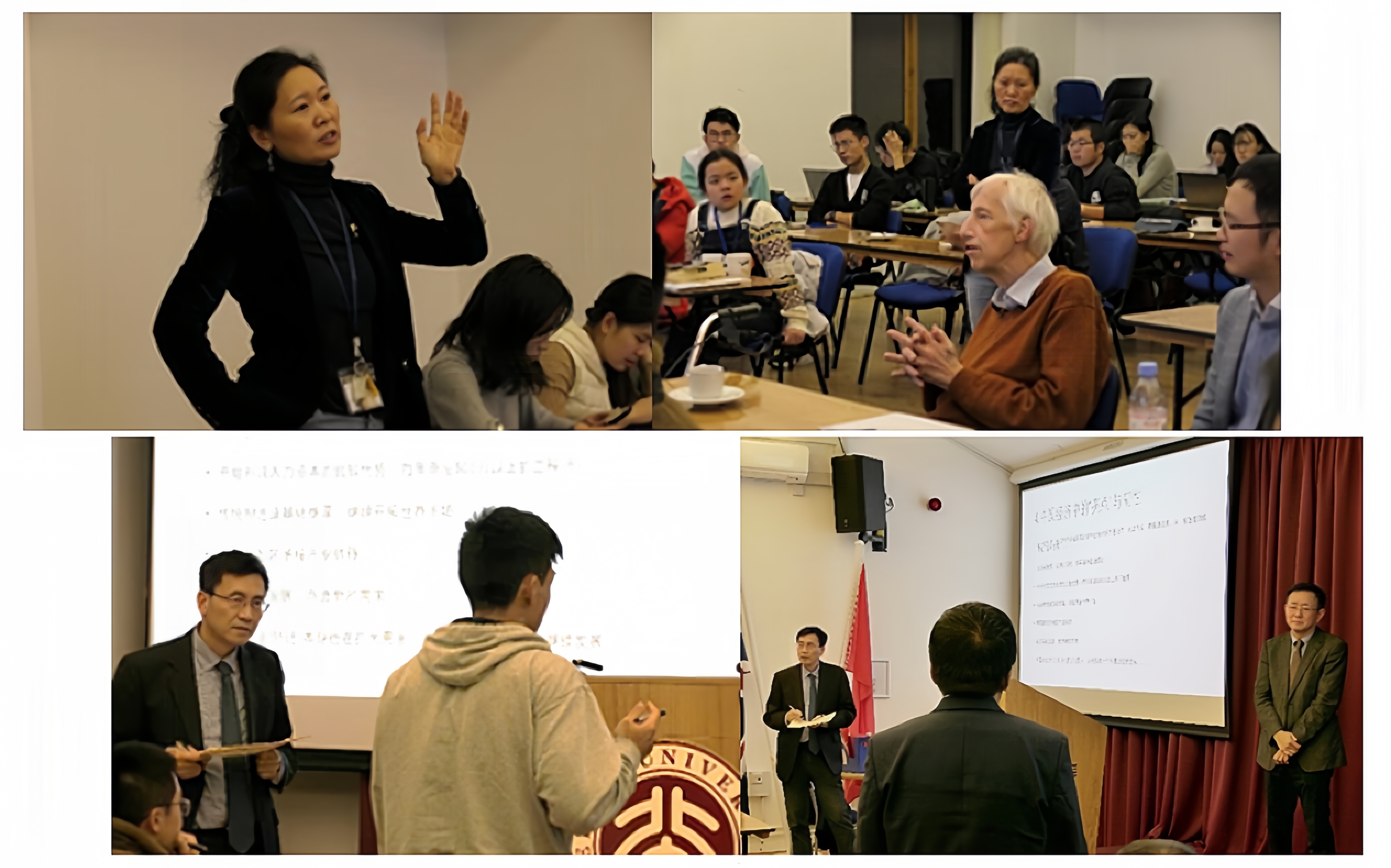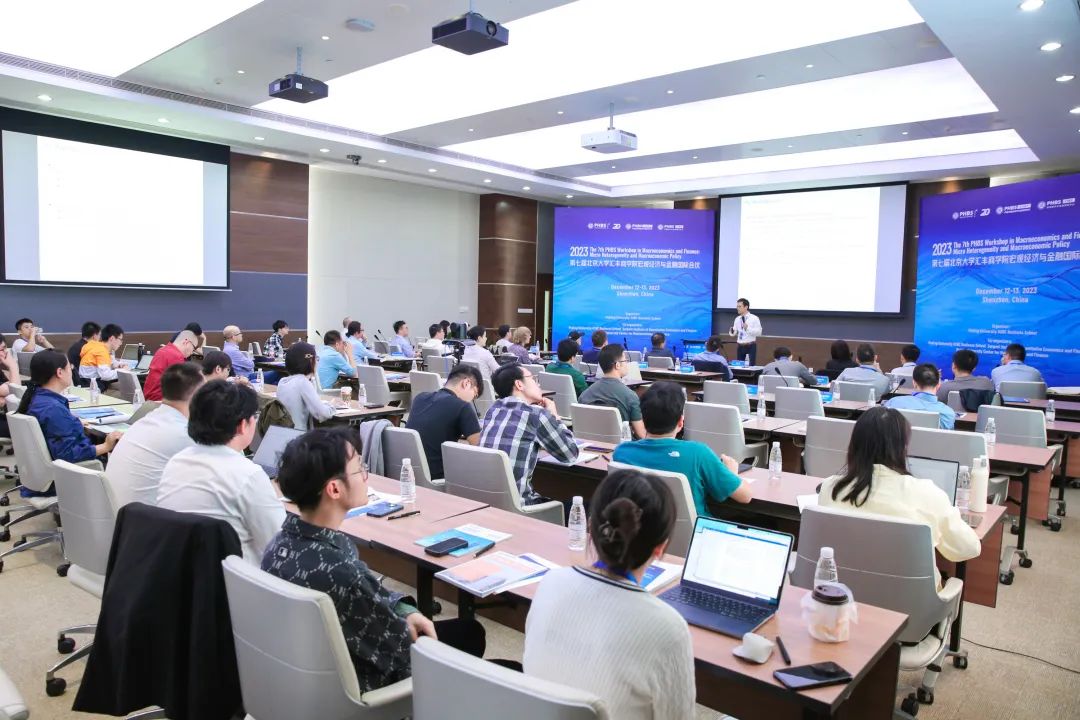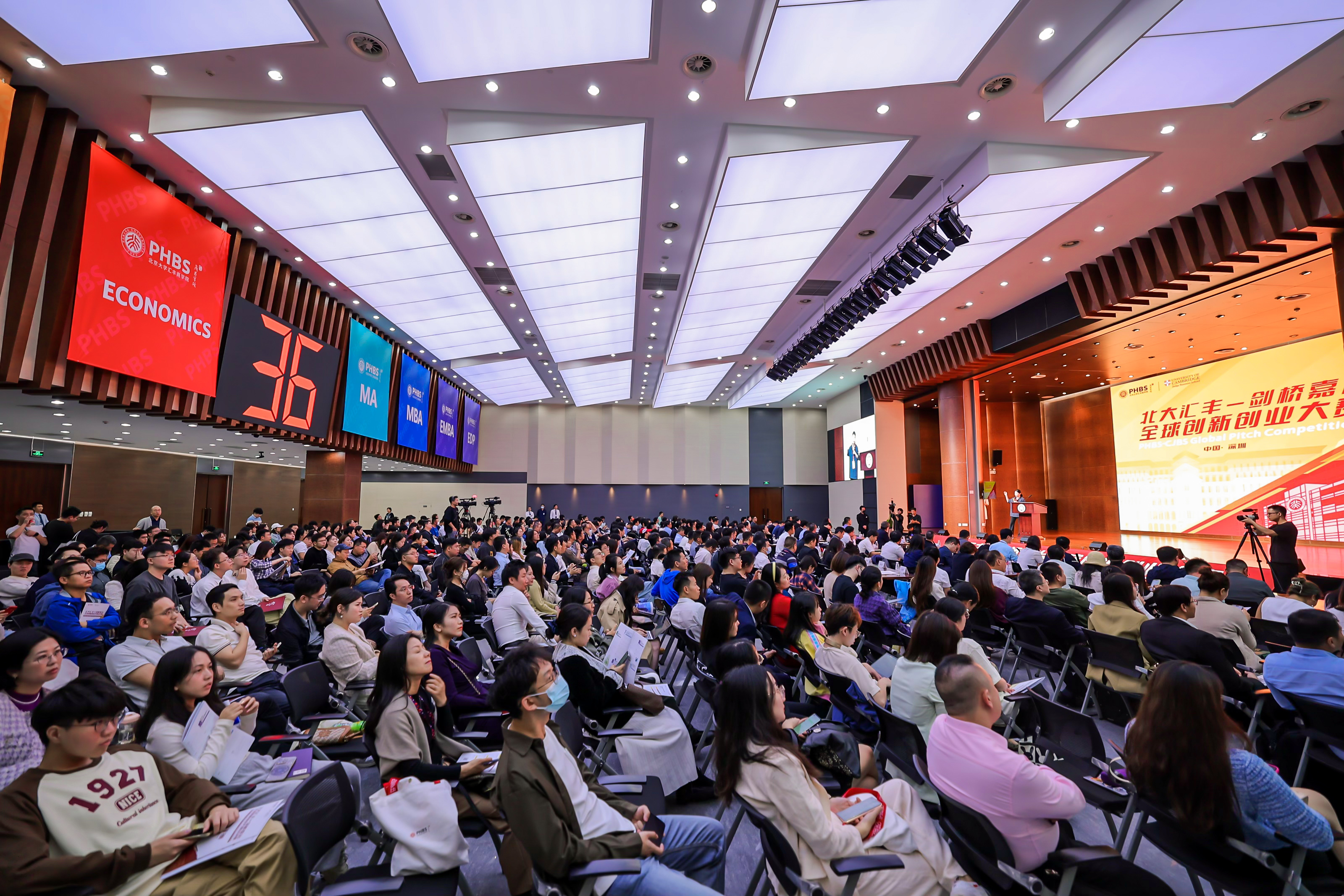Peking University HSBC Business School UK Campus (PHBS UK) held a seminar titled "China's Cyclical Downturn and Long-Term Growth," which attracted over 50 students and scholars from China and the United Kingdom to exchange insights on China's economic development. The event commenced with a warm welcome from Professor Guy Liu, who expressed sincere gratitude to all attendees. Next, Professor Shen Yan, the director of PHBS UK Campus, introduced the keynote speaker, Professor Fan Gang.
PHBS-UK Campus Seminar
Fan Gang, a distinguished economist with extensive experience, is a professor of economics at PHBS. Additionally, he serves as the vice president of the China Society of Economic Reform and the president of the China Development Institute. With a Ph.D. in economics obtained from the Chinese Academy of Social Sciences in 1988, Professor Fan is internationally renowned for his substantial contributions; he has published over 100 academic papers and 12 books on diverse topics such as macroeconomics, development economics, and economic transition. Moreover, he is actively involved as an advisor to Chinese central and provincial government departments, including serving as an academic member of the China Monetary Policy Committee from 2006 to 2010 and 2015 to 2018. With his substantial academic and practical experience, he was selected as one of the "World's Top 100 Public Intellectuals" by Foreign Policy and Prospect in both 2005 and 2008, as well as recognized as one of the "TOP 100 Global Thinkers" by Foreign Policy in 2010.
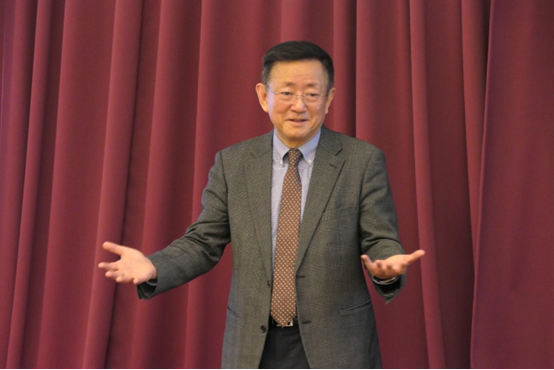
Professor Fan Gang gives a lecture on China's Cyclical Downturn and Long-Term Growth
By presenting an overview of China's macroeconomic performance from 1987 to 2022, Professor Fan highlighted that the country's sustained long-term high growth was transitioning to a recent period of lower growth, which was sparking international debates on whether it represented short-term cyclical downturn or the onset of a prolonged decline. His discussion delved into the decline in China's long-term potential growth rate, short-term factors contributing to economic fluctuations, and a comparative analysis with Japan's economic situation in the early 1990s.
To address the current situation, Professor Fan introduced the long-term challenges China is confronting. He emphasized that changes in wage cost structure have caused China to lose its comparative advantages in primary factors such as cheap labor, while still lacking comparative advantages in advanced factors such as human capital and capital. Additionally, he underscored the impacts of the tense geopolitical situation, including trade conflicts, disruptions in the global supply chain, and technological barriers, which all hinder China's latecomer advantage and increase development costs. He also pointed out that trade conflicts and "long-arm jurisdiction" have prompted companies to relocate overseas, transitioning from contributing a proportion of GDP to a proportion of GNP. He concluded that the combination of these factors has led to a decline in China's long-term potential GDP growth rate.
Next, Professor Fan examined various factors causing short-term economic fluctuations, including accumulated risks from China's prolonged high-growth phase, challenges in the real estate and municipal bond markets, and the fiscal crisis resulting from the COVID-19 pandemic. He emphasized the importance of nuanced policy implementation, cautioning against the indiscriminate application of policies that may be locally effective but unsuitable at a macro level, which could contribute to a decline in economic expectations among investors.
Regarding the ongoing debate on whether China's current low growth signifies a short-term trough or the beginning of a long-term decline, Professor Fan explained the cyclicality of market economies, highlighting that China's previous lack of crises and downturns during periods of high growth does not render the current challenges surprising. He compared the situation with that in Japan in the early 1990s, showing that there are differences in urbanization rates and economic development stages between the two nations. He emphasized that China has significant state assets acting as stabilizers, so is less likely to experience the prolonged stagnation seen in Japan.
At the end of his lecture, Professor Fan highlighted the positive aspects of China's current economic situation, particularly in cutting-edge industries such as electric vehicles, new energy, AI, digitalization of manufacturing, and biopharmaceuticals, among others. He acknowledged that while certain sectors may still be lagging, the gap with developed countries is narrowing. With cautious optimism, he maintained that policy improvements could address the short-term factors affecting China's economic fluctuations, and the country has the potential to achieve stable growth in the range of 5% - 6%, even though it might be challenging to sustain 9% - 10% high growth. He underscored the critical role of effectively managing policy issues in the context of global economic dynamics.
Professor Shen Yan gives remarks; Professor John Knight shares comments; Students raise questions; and Professor Guy Liu presides over the seminar.
During the Q&A session, Professor Fan Gang addressed various questions from the audience ranging from the impact of China's aging population on long-term growth, the complexities of exchange rate dynamics, and the potential for future economic improvement.
As part of the PHBS UK seminar series, this seminar provided participants with a deeper understanding of China's economic fluctuations and long-term growth from a developmental economics perspective. In the future, PHBS UK campus will continue to invite more elite experts and scholars from academia and industry to share their insights and perspectives on the latest industry developments, directions, and research methodologies.
Reporter: Ding Linyun and Peng Yujia
Photographer: YangYujie
Editors: Annie Jin, Gui Mengqiu, and Han Bing





